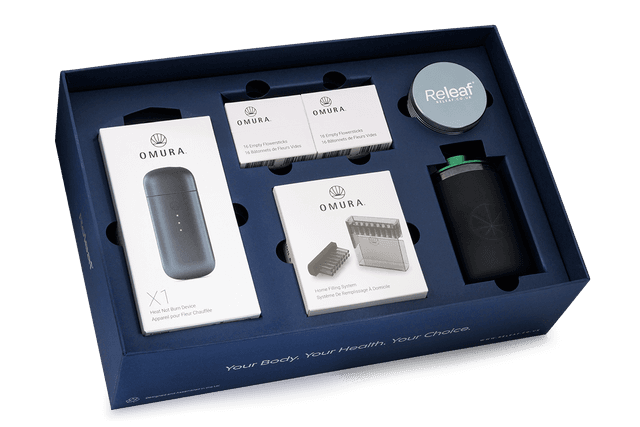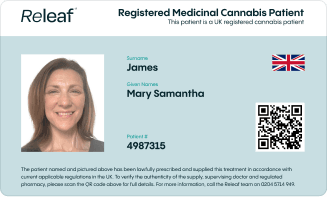Even though around 1 in 20 people in the UK are affected by fibromyalgia, the medical world is still puzzled by its complexity, and there is no known cure for the condition. Although painkillers and other treatments can be prescribed to help manage fibromyalgia symptoms, for some these traditional approaches still don’t provide the relief they need.
But, unbeknownst to many, those who have been struggling to manage their symptoms with conventional, licensed treatments in the UK may be eligible for medical cannabis, or cannabis-based medicines.
So, we felt it was important to sit down with our specialist, Dr Hanna Gul, and explore how medical cannabis may be able to make a drastic difference, or act as a lifeline, for these patients. Here’s what she had to say:
Can you tell us about the experiences you have had working in the NHS with fibromyalgia patients?
“I spent 14 years working for the NHS as a medical doctor, 10 of which were in Rheumatology, and I achieved my board-certification in 2022. During my time in Rheumatology, while there were many that found the help they needed, I felt that there was a population of fibromyalgia patients that did not respond to conventional treatment methods that were available to them on the NHS and beyond these treatments, there was little else to offer from a Rheumatology perspective.
These patients would typically come to Rheumatology and cycle through all different kinds of therapies including opioid analgesia, neuropathic painkillers, anti-depressants (initiated via their GP or Rheumatologist), in addition to trying physical therapies such as physiotherapy, hydrotherapy, and massage.
But, even despite these interventions, they were still not getting what they required and struggling daily with poor quality of life. Unfortunately, though, that’s the extent of what can be offered through Rheumatology, since fibromyalgia is not an inflammatory or autoimmune disorder, which are the main types of conditions Rheumatologists treat.”
How is fibromyalgia typically treated in the UK?
“Fibromyalgia is essentially a problem with pain processing within the nervous system, which does not typically respond to opiate analgesia or anti-inflammatory treatments, and the symptoms of fibromyalgia can be wide-spread and are variable. This commonly includes encountering issues with sleep, experiencing brain fog, or sensitivity to light and sounds. Anxiety and irritable bowel symptoms can also occur, and this is all in addition to pain.
Each of these symptoms have to be evaluated and considered when deciding on the best treatment approach. Given the varied symptoms, there are simply insufficient resources for these patients to be managed by a single speciality and therefore, a multi-disciplinary treatment approach is taken.
Following Rheumatology review, if patients are still struggling with symptoms, a chronic pain team referral is considered, which can come with its own setbacks - mainly the long waiting lists, which can be up to a year, or more. However, patients can benefit from treatments such as mindfulness, CBT and learning how to manage their pain.
But ultimately, during this time, patients usually end up cycling back to Rheumatology for more painkillers, or to access physiotherapy, since there is nothing else to offer them. Understandably, these patients are not happy with their treatment because they’ve ended up in this vicious cycle. For this reason, some patients consider using alternative treatments not available on the NHS.”
Why do you feel it’s important for fibromyalgia patients to know that medical cannabis can be prescribed in the UK?
“I think it's really important that fibromyalgia patients are aware that medical cannabis treatments can be prescribed to treat their symptoms if other options have failed.
There are a lot of patients who have described themselves as broken, forgotten, and exhausted, since they have cycled through so many treatment plans, and jumped through every hoop, and yet they’re still struggling.
But, evidence suggests that medical cannabis can treat a range of symptoms of fibromyalgia including poor sleep, pain, anxiety and brain fog, and although it won’t for everyone, it may have incredible results for some, as I have witnessed. In these cases, I think it's an opportunity well worth exploring.
It is important to note that before medical cannabis is considered, it must be ensured that these patients have been thoroughly investigated for other causes of their symptoms, have a formal diagnosis of fibromyalgia, and have trialled at least two conventional therapies that have failed to control their symptoms.”
Can you tell us about how you were introduced to medical cannabis?
“From my experience in the NHS, since medical cannabis has only recently been legalised in the UK and is not routinely offered on the NHS, it is simply not part of our routine medical education, therefore not typically considered as an option. It was certainly not discussed within the rheumatology department I worked in, it would not come up in our meetings or general weekly educational sessions, it was just not really spoken about.
But in 2021 and 2022, some of the fibromyalgia patients I was seeing in the rheumatology clinic told me that they had been self-medicating with cannabis, and found that it had helped them to manage their day-to-day activities, and take the edge off when intense pain occurs, which was helping them function better in their everyday life.
So, I started to do my own research and ask around. I joined Releaf because I wanted to use my skills as a Rheumatologist to help people struggling with their chronic pain and other symptoms, and overall, help to improve their quality of life. ”
How do medical cannabis fibromyalgia treatment plans typically work?
“Because fibromyalgia isn’t associated with inflammatory pain, and instead pain caused by abnormal sensory processing, as a rheumatologist, I think the best place to start is with addressing any sleep issues , since this is vital to help break the pain cycle.
Sleep has a major impact on pain tolerability, and once patients manage to get their sleep cycle sorted, they’re typically able to have better coping strategies, and can usually manage their pain better. Of course, every patient is different, but typically with new patients, taking a balanced CBD:THC cannabis oil in the evening can help to improve their sleep, and also act as a ‘long-lasting’ background painkiller.
This is because cannabis can target the pain pathways in the brain, and reduce the perception of pain. Patients who experience fibromyalgia or neuropathic pain tend to describe it as a constant background pain, which is why having a long-acting treatment like the oil is ideal, but cannabis flower can also be useful because when it is vaped, it can provide rapid pain relief, which can be useful for breakthrough symptoms or acute, sharp episodes of pains.”
Are there any common concerns patients voice when starting medical cannabis treatment?
“During initial consultations, there are some patients that have raised concerns over vaping and any potential lung damage, or worried about how cannabis may make them feel groggy or affect their driving - although this is a side effect of many medications.
But of course we understand these things may crop up. For patients who are concerned about vaping, we can accommodate them with a cannabis oil, and for those concerned about driving we point them in the direction of the CIC’s driving guidance.
I think most are pleasantly surprised by the lack of side effects. If patients do experience side effects, they are usually mild like feeling dizzy or tired, and they can be readily addressed by altering the oil or flower’s concentration and ratio or dosing routine. Cannabis-based treatments can be trial and error, but the follow-up consultation process is in place to make sure that everyone receives the most beneficial treatment.”
And, lastly, what kind of feedback have you received from patients treating their fibromyalgia symptoms with medical cannabis?
“During follow-up appointments, one month after cannabis treatments start, I’ve seen patients that say ‘I’ve had a dramatic impact in my sleep and in my pain’ which considering how many treatments these patients have already tried, is fantastic.
I think patients are also really pleasantly surprised by how quickly they get a response, or start to notice improvements compared to other medicines or treatments they have tried. In some cases in Rheumatology, medications can take between two and six weeks to start actually showing benefits, but with cannabis, patients report feeling multiple benefits very quickly.
There are a broad range of benefits to medical cannabis, when it's used appropriately, and patients have reported improvements in their pain, in their sleep, and in their mood - so it is addressing a number of their concerns, with the potential to experience fewer side effects in comparison to the opiates and anti-inflammatories they’ve been prescribed in the past. The experiences from specialists like myself speaks for itself, I feel.”
Closing thoughts
As Dr Hanna Gul explained, medical cannabis isn’t a suitable treatment for everyone. But, for those struggling with traditional fibromyalgia treatments, knowing medical cannabis provides viable and accessible treatment options could be a beacon of hope, or a step towards the new, reinvigorated you. To find out if cannabis-based treatments may be appropriate for you, fill in our free online eligibility checker today.






